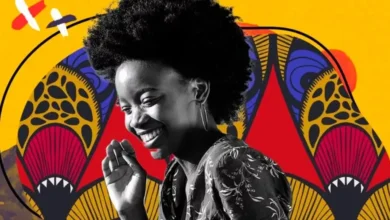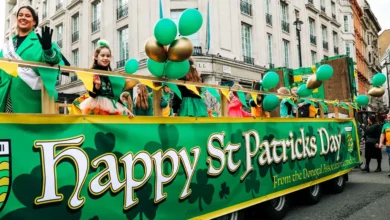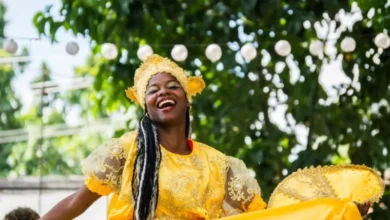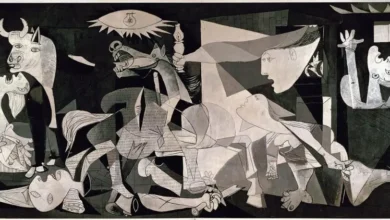The vibrant and diverse cultures of the Caribbean islands have had a profound and lasting impact on the global landscape of music and festivals. From the infectious rhythms of reggae to the dazzling costumes of carnival, the Caribbean’s influence is unmistakable. This article explores the ways in which this rich heritage has shaped musical genres, influenced festival traditions worldwide, and continues to inspire artists and audiences alike.
The Rhythmic Heartbeat: Caribbean Music’s Global Reach
Caribbean music isn’t just a collection of sounds; it’s a dynamic expression of history, resilience, and joy. It’s a tapestry woven with threads of African, European, and indigenous influences, resulting in a diverse range of genres that have resonated far beyond the islands’ shores. Let’s dive into some of the most influential forms:
Reggae: A Message of Peace and Revolution
Reggae, born in Jamaica in the late 1960s, is perhaps one of the most globally recognized Caribbean musical styles. Characterized by its offbeat rhythms, heavy bass lines, and socially conscious lyrics, reggae quickly spread beyond Jamaica, captivating audiences worldwide. Bob Marley, the genre’s most iconic figure, used his music to promote messages of peace, love, and social justice, making reggae not just a musical form, but a powerful cultural force.
The influence of reggae can be heard in countless genres, from pop to rock to hip-hop. Its distinctive rhythmic patterns and emphasis on social commentary have become foundational elements in the sound of many artists across the globe. It’s not just about the music itself; it’s also about the philosophy it embodies – one of resistance, hope, and unity.
See also How Chinese Culture Shapes Traditions Across Asia and Beyond
How Chinese Culture Shapes Traditions Across Asia and BeyondCalypso and Soca: The Carnival Sound
Originating in Trinidad and Tobago, calypso and soca are the energetic sounds of carnival. Calypso, with its witty lyrics and storytelling, often serves as a form of social commentary. Soca, its faster-paced descendant, is a high-energy genre specifically designed for dancing and celebration. Both genres are characterized by their infectious rhythms, often featuring steelpan music, and they are integral to the Caribbean’s vibrant festival culture. Their influence on global pop music is undeniable, with many artists incorporating elements of calypso and soca into their work.
The rhythmic structure of soca, with its heavy emphasis on the downbeat and call-and-response patterns, has found its way into various forms of electronic music. Additionally, the vibrant melodies of calypso have influenced the songwriting styles of many pop musicians who seek to capture the upbeat and celebratory essence of Caribbean music.
Dancehall: A Raw and Energetic Expression
Dancehall, a Jamaican genre that emerged in the late 1970s, is characterized by its raw, rhythmic energy and often features deejays toasting over instrumental tracks. This genre is known for its fast tempos and its focus on the dance and party aspect. Dancehall has become a significant influence on contemporary pop, hip-hop, and electronic music, injecting its gritty, danceable energy into these genres. Its influence extends beyond the music itself, impacting fashion, dance moves, and overall urban culture.
Many artists from various genres have collaborated with dancehall musicians, further cementing the genre’s global reach. Its rhythmic foundations can be found in numerous chart-topping hits, proving its staying power and versatility.
See also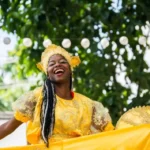 How Cuban Culture Contributed to the Global Rise of Salsa Music
How Cuban Culture Contributed to the Global Rise of Salsa MusicOther Influential Genres
Beyond these prominent examples, other Caribbean genres, like mento, zouk, and compa, have also contributed to the global music scene. These genres, while perhaps not as widely recognized as reggae or soca, each offer a unique rhythmic and melodic expression that has influenced various musicians and contributed to the diversity of global sounds. They highlight the breadth and depth of musical creativity within the Caribbean region.
The Carnival Spirit: How Caribbean Festivals Shape Global Celebrations
Beyond music, the Caribbean’s influence on global festivals is equally significant. Carnival, perhaps the most celebrated example, is a vibrant explosion of color, music, and dance that has inspired countless celebrations around the world. The themes, costumes, and parades of Caribbean carnivals have left an indelible mark on global festivities.
Carnival’s Cultural Significance
Carnival is far more than just a party; it is a deeply rooted cultural tradition that celebrates freedom, heritage, and community. Its roots can be traced back to European traditions, but they were transformed and enriched by the African and indigenous cultures of the Caribbean. The flamboyant costumes, rhythmic dances, and vibrant music are all expressions of this rich heritage. Carnival is a time for expression, release, and collective joy, and it embodies the spirit of the Caribbean people.
This spirit of freedom and joyful expression is at the heart of many carnivals around the world, many of which have adopted elements from Caribbean celebrations. From Brazil to Germany, the influence of Caribbean carnival can be seen in the vibrancy and energy of these festivals.
Key Elements of Caribbean Carnival that Influenced Global Festivals
- Costumes: The elaborate and brightly colored costumes of Caribbean carnival are iconic. These often feature feathers, beads, and intricate designs that have inspired many other festival outfits around the world. The emphasis on creativity and expression through costume has become a key component of many global celebrations.
- Parades: The energetic parades, filled with dancers, floats, and music, are a central element of carnival. These parades are not just displays; they are dynamic performances where participants showcase their culture and creativity. This format has been adopted by numerous festivals, creating a sense of spectacle and community.
- Music and Dance: The rhythmic music and expressive dance moves of carnival are infectious. The incorporation of genres like soca, calypso, and dancehall into carnival celebrations creates an energetic atmosphere that encourages participation and enjoyment. This has inspired a focus on music and dance in festivals worldwide.
- Street Parties: Carnival’s spontaneous street parties are a fundamental element of the celebration. These parties create a sense of community and allow for free expression. This tradition of open, accessible celebrations has influenced festival culture globally, making events more participatory and immersive.
Carnivals Around the World
The influence of Caribbean carnival can be seen in many cities across the globe:
- Notting Hill Carnival (London): This massive street festival is a vibrant celebration of Caribbean culture in the UK, drawing millions of visitors each year. Its music, costumes, and parades are heavily influenced by Trinidadian carnival traditions.
- Toronto Caribbean Carnival (Canada): This North American festival mirrors the energy and spectacle of Caribbean carnivals, celebrating the culture and traditions of the islands.
- Carnival in Rio de Janeiro (Brazil): While having its own distinct character, the Rio carnival shares many structural and thematic similarities with Caribbean carnivals, particularly in the use of elaborate costumes, parades, and music.
- Many other cities across the US, Europe, and Africa: Numerous smaller festivals across the globe incorporate Caribbean influences, demonstrating the far-reaching impact of this cultural celebration.
The Enduring Legacy: Continued Influence
The influence of Caribbean culture on global music and festivals continues to evolve and expand. Contemporary artists are constantly incorporating elements of Caribbean music into their work, and festival organizers are drawing inspiration from the vibrancy and energy of Caribbean celebrations. The legacy of the Caribbean is not just a historical footnote; it is a living, breathing force that continues to shape the cultural landscape of the world.
The cross-pollination of ideas between different cultures has led to new and exciting musical fusions and festival traditions. This constant exchange ensures that the sounds and spirit of the Caribbean remain a vibrant and essential part of the global cultural narrative. The resilience and creativity of the Caribbean people continue to inspire and enrich global artistic expression.
Conclusion
The Caribbean’s contribution to global music and festivals is undeniable and profound. From the powerful messages of reggae to the high-energy rhythms of soca and dancehall, and the vibrant spectacle of carnival, the influence of Caribbean culture can be felt in every corner of the world. It’s a legacy of creativity, resilience, and a joyful celebration of life, making its impact felt for generations to come. As we continue to embrace and appreciate this rich heritage, we are also celebrating the interconnectedness of our global community.“`

